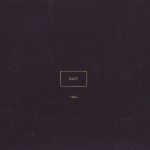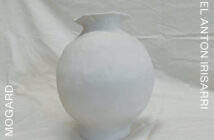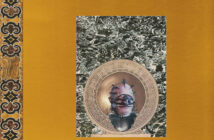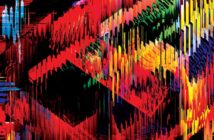There’s a very specific phenomenon happening to me with Rotor Plus’ Dust album that I’ve never really experienced before. That is that I’m tending to think a lot more about it when it’s not playing than when it is. As an electro-acoustic album it tends to follow paths that are not entirely uncommon – a mix of field recordings, acoustic instrumentation, synth meander and digital editing and processing. While I’m listening, these tend to pass by in slow motion evocation, never quite grabbing your attention but always maintaining an environment altering presence. When I’m away from actually listening to it, however, the sounds blur in my mind and take an even stronger stranglehold of my perception. I can’t consciously remember specifics but know the mood into which I’ve just been pulled. The layers of reverberation, from a small room to the streets to large canyons, meld into one haze of perception. I’ve been moved, but the details of where or how are gone. That this type of perceptual shadowplay has been evoked is essential for this type of music. It achieves what classic ambience always aimed for – disappearing into the background yet altering everything within its path. It’s a fine balance that originators such as Eno understood well but has, over the years, often been overlooked if not entirely lost.
Which is not to say that Dust is devoid of any ear catching moments. Split into three long form tracks – ‘beginning: an empty street’, ‘middle: the drape of the curtain’ and ‘end: a boundary and an edge’ – each of these is made up of smaller, episodic sections. And sonic moments do stand out. When a sharp fiddle sounds a two note blast just after 6 minutes into ‘beginning: an empty street’, which has, until then, been a gentle wash of background noise, it really does feel like a razor through the ears. The gentle tape warbles during the 21st minute add an eery element of movement through time to the spacial travels that have already taken place. And the gentle, Satie-like murmurs of piano which appear and submerge throughout keep you aware that this is human space, no mater what subliminal ghosts pass through the machines.
What I’m enjoying most about Dust is that it doesn’t sound like the soundtrack to an imaginary film – the hoary fallback of countless musicians-as-evokers. This just sounds. Like a good abstract painting it doesn’t force you to think of something outside of itself but simply is of itself. And in those moments when my memory is putting it back together arbitrarily in my mind, I’m not being placed in some world the music is trying to resemble but simply in the place that the music is. It’s an important distinction but one which lifts Dust above the run of the mill soundscape.
Adrian Elmer




